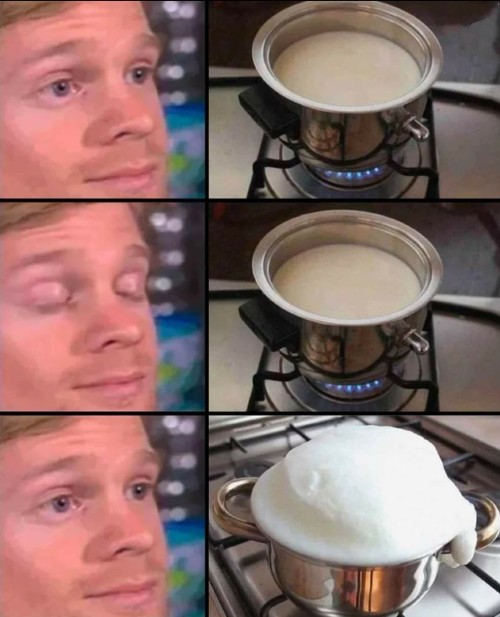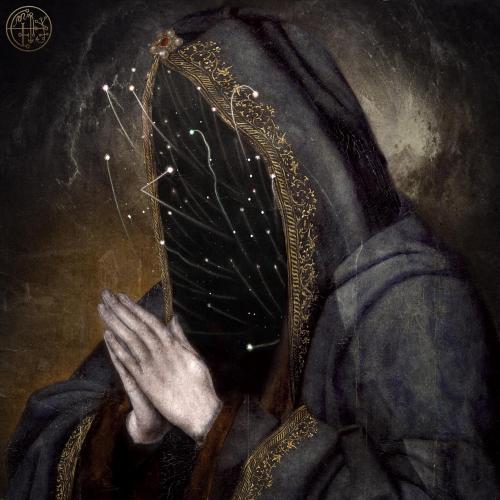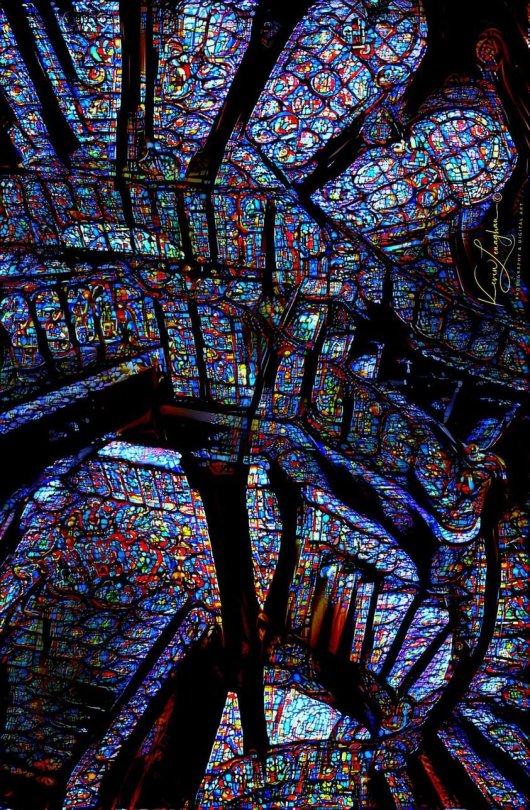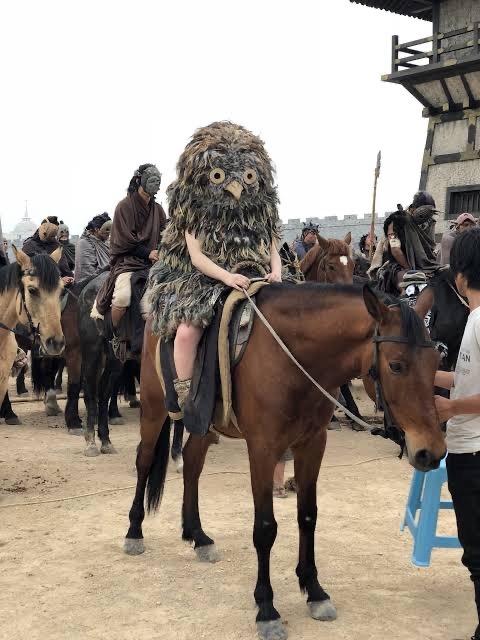Saintedsorcery - The Road Beneath The Hill

More Posts from Saintedsorcery and Others
Of Toads and Toxins
Warning: This post is super rambley and I’m sorry

(Shout out to Courir le loup-garou for being an amazing resource)
Three things have been on my mind a lot lately: ancestors, malefica, and the toad. So imagine my happiness and surprise when reading a blog post about Toads in French-Canadian folklore/folk magic being poisoners.
Since discovering French-Canadian sorcellerie via courir le loup-garou I have been trying to incorporate parts of it into my practice as a way of connecting with my Québécois roots. I’ve even recently found a language learning app that offers Canadian French/Québécois so I plan on learning the language as a way to further connect. Very very exciting!
I’ve also been slowly getting into using poisons more in my practice, specifically working with the plants spirits as allies and less working directly with them in herbal preparations. I’ve been particularly drawn to mandrake and foxglove. Foxglove specifically for its link to the fayerie folk so it makes sense to work with as someone who follows Fayerie Traditionalism.
~(I blame Coby of The Poisoner’s Apothecary for the poison path focus lol)~
In connection to the poison path is malefic magic. The idea of the witch as a poisoner, a blighter of crops, a caster of curses. Not that I’m someone who wants to just throw hexes around like they’re nothing but I’m more interested in studying them and researching how they operate magically.
The toad spirit has been one that has floated in and out of my craft for YEARS never fully leaving but not always being of high importance. I think that’s really because I’ve never figured out how to work with this spirit in a way that makes sense to my and my craft. Reading the blog on toads in French-Canadian folklore has given me some possible inspiration. I’m hoping to commune with the spirit of Toad to learn more of cursing and malefica and to employ my toad imp to carry out any curses or hexes that I may weave.

Our Wish for the End, Me, Digital Collage, 2020

My friend sent me this today and I thought it was very important to share for all my fellow Viking/Norse mythology lovers. Daily reminder: fuck white supremacy.

Agrippa ~ Of the seals, and characters of natural things.
Everything therefore hath its character pressed upon it by its star for some peculiar effect, especially by that star which doth principally govern it: and these characters contain, and retain in them the peculiar natures, virtues and roots of their stars ….
it is so wild to me the fashions that are called “emo” today. especially given the fact that probably 80-90% of it is actually scene, not emo. this would have started full on wars 15 years ago
But to make a Milkhare, do the following:
On takes nine different coloured thread of woolen yarn and go with them to a crossroads on a Thursday night between twelve and one o’clock. Here, one makes a fire from nine different kinds of wood and wind counter-clockwise, around the fire, a ball of the woolen yarn threads. When the ball is ready, one drops three drops of blood out of the left ring finger with the following words: ” If you will run for me here on earth, then I shall burn for you in Hell.”
Then one takes and whips the Milkhare with a birch twig and says: ”Money you will draw, butter you will drawn (or whatever one wants the milkhare to draw.)” Everything one desires one can get the Milkhare to draw, and the Milkhare follows generation after generation.
- Svartkonstböcker; A compendium of the Swedish Black Art Tradition, Dr. Thomas K. Johnson
Trump for Prison Tuesday, March 21, 2023
Like to charge reblog to cast



Kevin Lenaghan, “Stairway”, “Glass Palace”, and “Crystal Stairway” (2021)

What is the distinction between a mage, a wizard, a sorcerer, and a witch? Is there one?
Hello there.
I think it's a question many have, and understandably so. I'm no expert in the anthropological distinction between traditions, but I'll do my best to answer.
To a certain degree, all the terms are somewhat conflated, but there is some nuance to the meanings behind the words.
Where my usage is cocnerned, Mage is a name that essentially describes any practitioner of any kind of magical tradition. It is basically synonymous with magician. Though, the former has become associated with fantasy fiction to an extent, while the latter has become more closely associated with illusionist performers.
Wizard is a term that was often historically associated with Cunning Folk, and Cunning Men in particular. The etymological roots of the word amounts to 'wise individual.' Though myth, folklore, and modern fiction have all done much to fantasize the term, the core connotation of the word is still—so far as I'm concerned—a member of the Wise.
A Sorcerer is a bit vaguer in its specific meaning, but it ultimately amounts to an individual who practices magic—particularly magic seen as "dark" in nature. Though the original meaning of the word referred to 'one who casts lots' (told fortunes/performed divination,) sometime in the 15th century, that meaning was displaced by the definition of 'one who conjures evil spirits.' With all that in mind, I would say that sorcerer and witch are the most closely aligned of the terms mentioned here.
Finally, and possibly most difficult to pin down precisely, is the title of Witch. Though the word does have posited etymological and historical roots in prophecy, necromancy and in generalized magic, its ultimate meaning became more clearly delineated as 'one with malignant supernatural knowledge and skills' As such (and for others reasons I'm sure you can find plenty of people discussing on the internet,) I would say that witch is a title that mostly accurately reflects a magical practitioner with the ability to use baneful power, and whose practice is generally associated in some way with Sabbatic Flight and rites of Initiation.
I hope that can help.
-
 notgonnapost4 reblogged this · 1 week ago
notgonnapost4 reblogged this · 1 week ago -
 panicattackunleashed reblogged this · 1 month ago
panicattackunleashed reblogged this · 1 month ago -
 petals-and-leaves liked this · 1 month ago
petals-and-leaves liked this · 1 month ago -
 cuprat liked this · 1 month ago
cuprat liked this · 1 month ago -
 cervenakoviny liked this · 1 month ago
cervenakoviny liked this · 1 month ago -
 theultimatedisaster liked this · 1 month ago
theultimatedisaster liked this · 1 month ago -
 no-soul-no-sleep reblogged this · 1 month ago
no-soul-no-sleep reblogged this · 1 month ago -
 not-very-cashmoney-of-you reblogged this · 1 month ago
not-very-cashmoney-of-you reblogged this · 1 month ago -
 not-very-cashmoney-of-you liked this · 1 month ago
not-very-cashmoney-of-you liked this · 1 month ago -
 salmiakkisaatana reblogged this · 1 month ago
salmiakkisaatana reblogged this · 1 month ago -
 north-vampire reblogged this · 2 months ago
north-vampire reblogged this · 2 months ago -
 north-vampire liked this · 2 months ago
north-vampire liked this · 2 months ago -
 aiderynddraig reblogged this · 2 months ago
aiderynddraig reblogged this · 2 months ago -
 pamprinninja liked this · 2 months ago
pamprinninja liked this · 2 months ago -
 exhaustingexistance reblogged this · 2 months ago
exhaustingexistance reblogged this · 2 months ago -
 exhaustingexistance liked this · 2 months ago
exhaustingexistance liked this · 2 months ago -
 feed-the-roses reblogged this · 2 months ago
feed-the-roses reblogged this · 2 months ago -
 thearunadragon liked this · 2 months ago
thearunadragon liked this · 2 months ago -
 i-steal-bones reblogged this · 2 months ago
i-steal-bones reblogged this · 2 months ago -
 i-steal-bones liked this · 2 months ago
i-steal-bones liked this · 2 months ago -
 notgonnapost4 reblogged this · 2 months ago
notgonnapost4 reblogged this · 2 months ago -
 notgonnapost4 liked this · 2 months ago
notgonnapost4 liked this · 2 months ago -
 naddle-schidaddle liked this · 2 months ago
naddle-schidaddle liked this · 2 months ago -
 dracl-dragon liked this · 2 months ago
dracl-dragon liked this · 2 months ago -
 just-another-colin-kinnie liked this · 2 months ago
just-another-colin-kinnie liked this · 2 months ago -
 foggythefandomgremlin reblogged this · 2 months ago
foggythefandomgremlin reblogged this · 2 months ago -
 foggythefandomgremlin liked this · 2 months ago
foggythefandomgremlin liked this · 2 months ago -
 cheeselovingbloodyfella liked this · 3 months ago
cheeselovingbloodyfella liked this · 3 months ago -
 xeviersnow liked this · 3 months ago
xeviersnow liked this · 3 months ago -
 sorryididntgo reblogged this · 3 months ago
sorryididntgo reblogged this · 3 months ago -
 shiyenigmatika liked this · 3 months ago
shiyenigmatika liked this · 3 months ago -
 minimiickey reblogged this · 3 months ago
minimiickey reblogged this · 3 months ago -
 bean-bean-bean-machine liked this · 3 months ago
bean-bean-bean-machine liked this · 3 months ago -
 glints-of-light reblogged this · 3 months ago
glints-of-light reblogged this · 3 months ago -
 trojinarts liked this · 3 months ago
trojinarts liked this · 3 months ago -
 solarflaresdaddyissues liked this · 3 months ago
solarflaresdaddyissues liked this · 3 months ago -
 i-like-to-eat-chairs-x2 reblogged this · 3 months ago
i-like-to-eat-chairs-x2 reblogged this · 3 months ago -
 i-like-to-eat-chairs-x2 liked this · 3 months ago
i-like-to-eat-chairs-x2 liked this · 3 months ago -
 furcillos reblogged this · 3 months ago
furcillos reblogged this · 3 months ago -
 my-dear-ceramic-frogs liked this · 3 months ago
my-dear-ceramic-frogs liked this · 3 months ago -
 honey-of-the-abyss liked this · 3 months ago
honey-of-the-abyss liked this · 3 months ago -
 username-is-required reblogged this · 3 months ago
username-is-required reblogged this · 3 months ago -
 atherflame-theconcubus liked this · 3 months ago
atherflame-theconcubus liked this · 3 months ago -
 thatguywhodoesstuff liked this · 3 months ago
thatguywhodoesstuff liked this · 3 months ago -
 willowshimmer liked this · 3 months ago
willowshimmer liked this · 3 months ago -
 wyrm-with-a-why liked this · 3 months ago
wyrm-with-a-why liked this · 3 months ago -
 miaouumiaouu liked this · 3 months ago
miaouumiaouu liked this · 3 months ago -
 weirdcoregal35 liked this · 3 months ago
weirdcoregal35 liked this · 3 months ago -
 l0ne-star-demara liked this · 3 months ago
l0ne-star-demara liked this · 3 months ago
